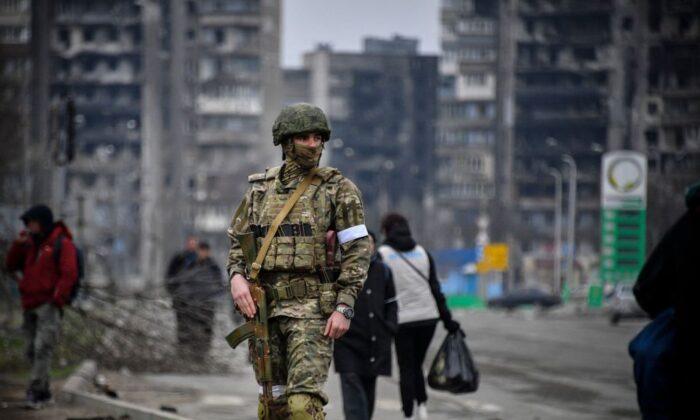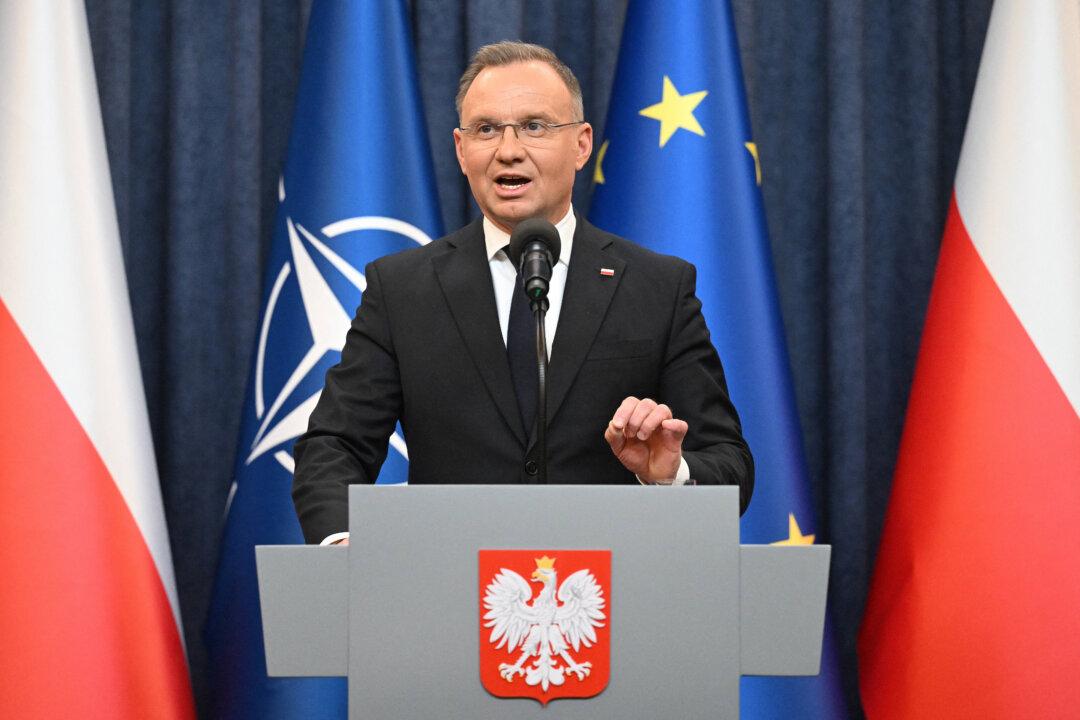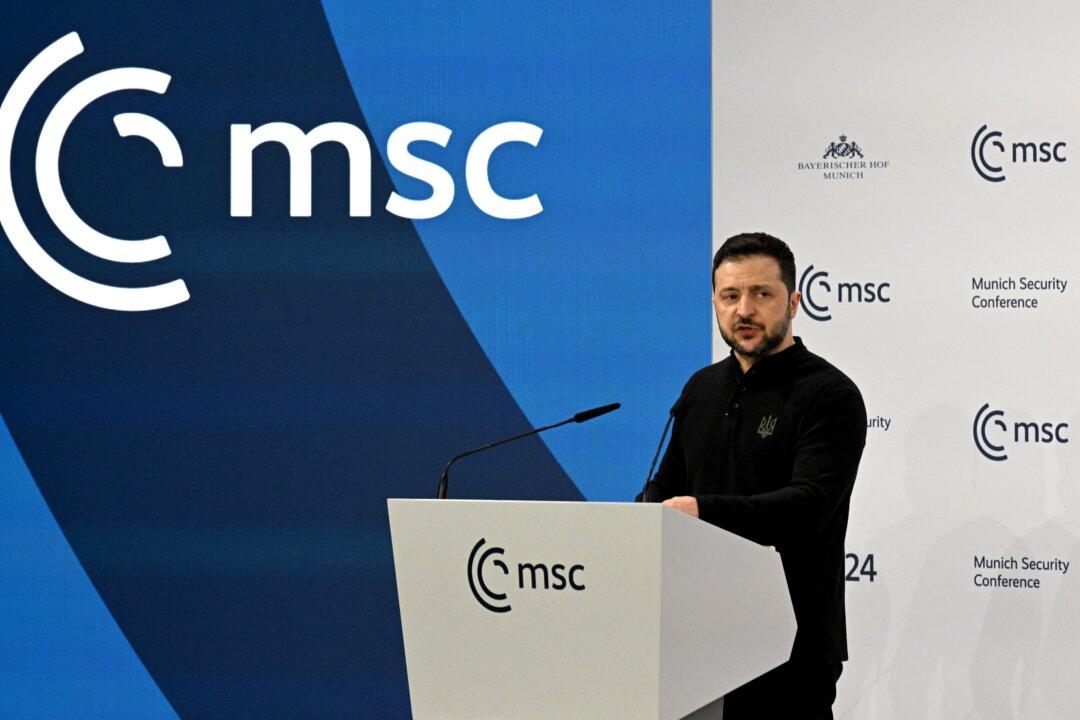The growing alliance between Russia and communist China carries significant implications for the war in Ukraine and the future of U.S. nuclear deterrence more broadly, according to one former general.
Retired U.S. Air Force Brig. Gen. Robert Spalding says it’s likely that the intensity of Russian military actions in Ukraine and potentially elsewhere will increase as Beijing and Moscow grow closer and that there’s a real risk that nuclear war could erupt.
Without economic, diplomatic, and, potentially military aid from the Chinese Communist Party (CCP), Russian leader Vladimir Putin wouldn’t have been able to sustain the significant losses incurred by the Russian military, Spalding told The Epoch Times.
“I think it’s going to embolden Putin the more support he gets from China, clearly,” Spalding said. “He’s been emboldened this entire time by China’s support.
Russia Dependent on CCP Support for War in Ukraine
The CCP has consistently blamed the United States and its NATO allies for Russia’s invasion of Ukraine and has parroted the Kremlin’s propaganda by describing the war as a “special military operation” and censoring condemnations of the conflict on Chinese social media.However, Spalding believes that the CCP started delivering such aid long ago.
“I’m of the opinion that they’re helping them with lethal aid, but it’s likely either American or other Western equipment that Chinese companies help them procure by bypassing sanctions,” he said.
“It’s not likely that the Chinese right now would be having their own equipment sent, so that if it was captured on the battlefield, you could see that it had come from China. But, if it’s coming from some Western country, then you’re not going to know how, necessarily, the Russians procured it.”
Interestingly enough, the White House has acknowledged that Chinese companies have directly supported Russia’s war in Ukraine but have stopped short of saying that such support amounts to lethal aid.
That same report alleges that the CCP is currently preparing a shipment of suicide drones to Russia for use in Ukraine.
US Nuclear Deterrence Unprepared for Multipolar World
With the warming of the relationship between the CCP and the Kremlin and tensions with the United States at historic highs, Spalding warned that the United States was entering unknown territory in terms of nuclear strategy.The United States has never before had to simultaneously deter two major nuclear powers, he noted, and its ability to prevent the war in Ukraine from spiraling into a nuclear holocaust is waning by the day.
“We have to be very careful that this doesn’t turn into World War III,” Spalding said.
“You can’t say that the United States is not constrained in terms of how it looks at the conflict and the potential that it could escalate beyond its current bounds. That’s something that could be very dangerous for the United States and for NATO.”
Spalding warned that a widening of the war in Ukraine could threaten the world with a situation similar to that of the Korean War in the 1950s, when combat between the democratic West and Communist Eurasian powers nearly erupted into nuclear war.
A key part of the problem is that the United States lacks the type of nuclear capabilities required to deter both China and Russia from initiating a nuclear war, he said.
Essentially, Spalding said, Chinese and Russian forces are investing heavily in expanding their nuclear arsenals, including so-called first-use weapons. Such weapons are designed to eliminate an adversary’s nuclear arsenal up front, thereby eliminating the ability of that adversary to strike back against a nuclear aggressor.
Unless the United States enhances its own arsenal, it risks becoming the victim in a nuclear war, he said.
“It’s all part of the calculation of how much do we need to ensure that it’s not a good idea for Russia and China to combine on a preemptive strike of U.S. nuclear forces,” Spalding said.
“If China and Russia have sufficient forces that they can basically destroy the American capacity to have a credible second-strike capability that would deter the Russian and Chinese from launching a preemptive attack, then we risk them launching a preemptive attack.”





